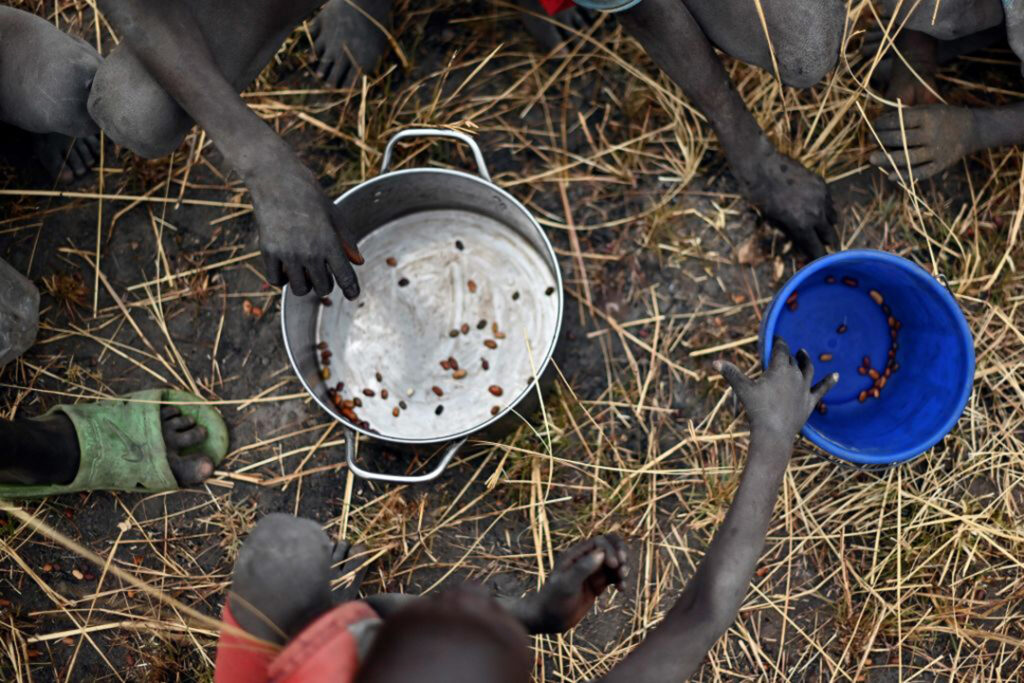ADF STAFF
Food security in Africa was a major issue before 2020, but the COVID-19 pandemic and its corresponding economic fallout have worsened hunger issues across the continent.
Just more than a year after the virus struck, leaders are coming together to search for long-lasting solutions.
A coalition of development banks, including the African Development Bank (AfDB), the Arab Bank for Economic Development in Africa and the United Nations International Fund for Agricultural Development, announced on April 30 a pledge of more than $17 billion to improve food security on the continent.
“I think it is time for us to set up a financing facility for food security and nutrition in Africa,” said AfDB President Akinwumi Adesina during a virtual conference. “COVID-19 has wreaked havoc. Aside from the number of people that have died, the impact on Africa’s food security has been severe.
“Today, 246 million Africans go to bed hungry each day.”
More than 155 million people worldwide suffered severe food insecurity in 2020 compared to 135 million in 2019, according to the annual Global Network Against Food Crises (GNAFC) report released on May 5.
“Countries in Africa remained disproportionally affected by acute food insecurity,” the report said. “Close to 98 million people facing acute food insecurity in 2020 — or two out of three — were on the African continent.”
With the global pandemic came economic contraction, unemployment and supply chain disruption. Few countries have invested sufficiently in agricultural training, research and infrastructure.
On a continent that imports $80 billion in food and agricultural products every year, insecurity continues to drive farmers off their lands.
United Nations Secretary-General Antonio Guterres called it a vicious cycle.
“Conflict and hunger are mutually reinforcing,” he wrote in the GNAFC report. “We need to tackle hunger and conflict together to solve either. Addressing hunger is a foundation for stability and peace.”
The need for action grows more urgent by the day.
Southern Madagascar is teetering on the brink of famine. Tens of thousands of people in parts of Burkina Faso, Nigeria and South Sudan are on high alert for starvation. Food insecurity runs rampant in West and Central Africa. Several countries in Southern Africa have declared a drought.
African leaders believe the keys to food security can come from within.
“The establishment of production systems and transformation systems of food must be more resilient,” Senegalese President Macky Sall said at the virtual conference. “This is no longer an option, but it is mandatory.”
He offered an action list:
- Accelerate agricultural production by taking technologies to scale.
- Increase investment in research and development.
- Optimize technology.
- Improve business language in agriculture to open up to the world.
- Support access to markets and the installation of basic infrastructure and equipment.
- Invest in new businesses to transform agricultural produce to support small producers.
- Create a facility for agricultural transformation.
The stakeholders believe in the potential to greatly enhance intra-African agricultural trade, which is estimated to be less than 20% of imports.
“Getting new and appropriate technologies into the hands of African farmers is a key part of addressing Africa’s agriculture and food security needs,” Adesina said. “Unless we show strong collective resolve and turn ambition into reality, we will be confronted with enormous food shortages on the continent.”
Rwandan President Paul Kagame summed up the virtual conference, saying that the task is nothing less than transforming agriculture in Africa.
“We need to strengthen partnerships to tap into successful innovations to produce more food at affordable prices,” he said. “Agribusiness can be a pathway to prosperity for African families.”

